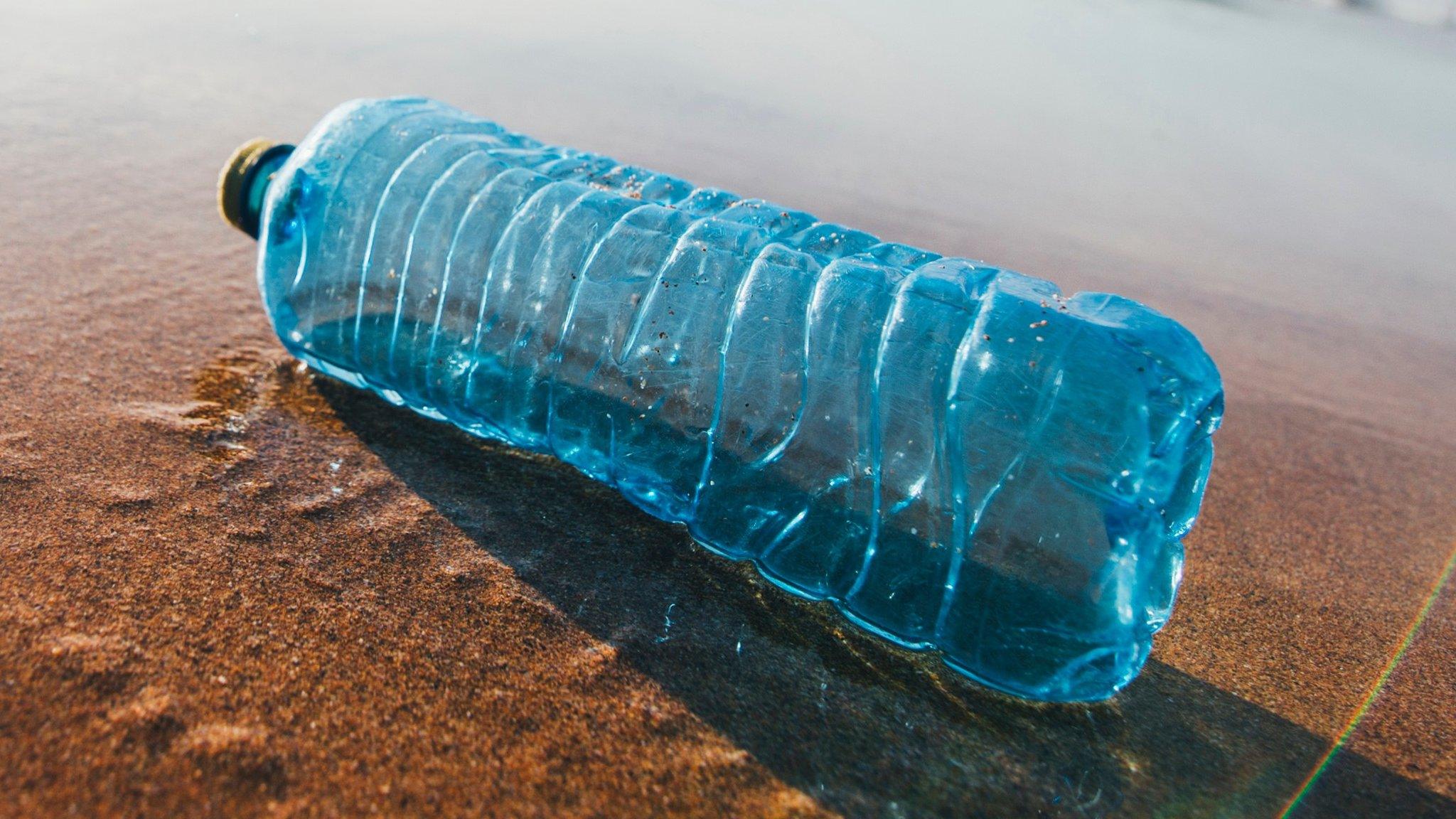Single-use plastic bag use has dropped by 98% since charge was introduced
- Published
- comments
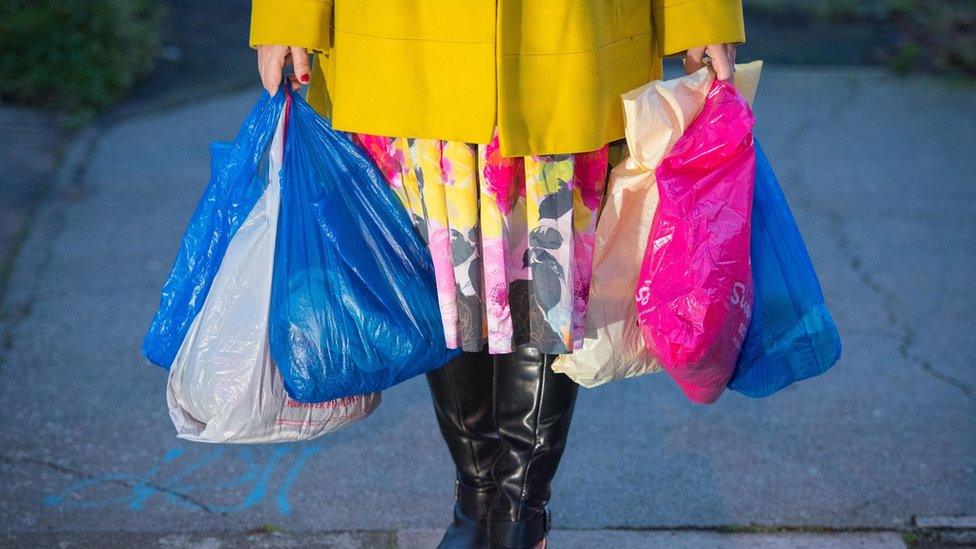
Single-use plastic bags are used a lot less since the charge, but some campaigners say the figure doesn't tell the whole story
Single-use plastic bags usage has dropped 98% since the 5p charge for was introduced in 2015, official figures have shown.
The amount of single-use plastic carrier bags sold by seven leading supermarket chains plummeted from 7.6bn in 2014 to 133m last year, the Department for Environment, Food and Rural Affairs (Defra) said on Monday.
The government claim this means the average person in England only buys two plastic carrier bags a year.
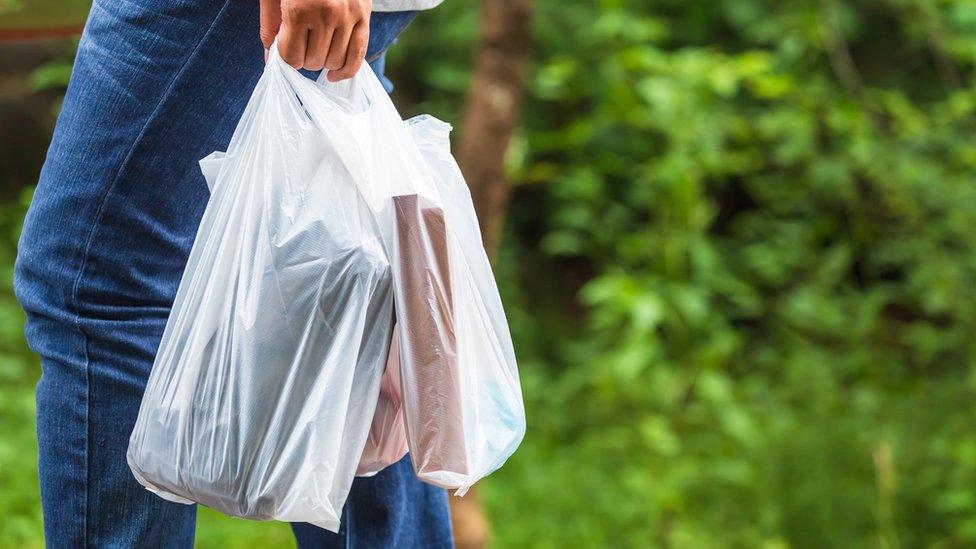
Some have said single-use plastic bags should be banned completely across the UK
But environmental campaigners, while they welcome this news, say this figure doesn't account for all types of plastic bag, such as bags for life. It's only about single-use bags - so the ones we only use once before they're binned.
Anna Diski, a plastic campaigner for Greenpeace, told BBC Newsround: "The plastic bag charge has been a big success and has lots of public support. But not all plastic bags are included in the statistics, for example so-called 'bags for life'.
"These are types of bag made from thicker plastic which are meant to be used more than once. As they're made from plastic we need to cut down on them too."
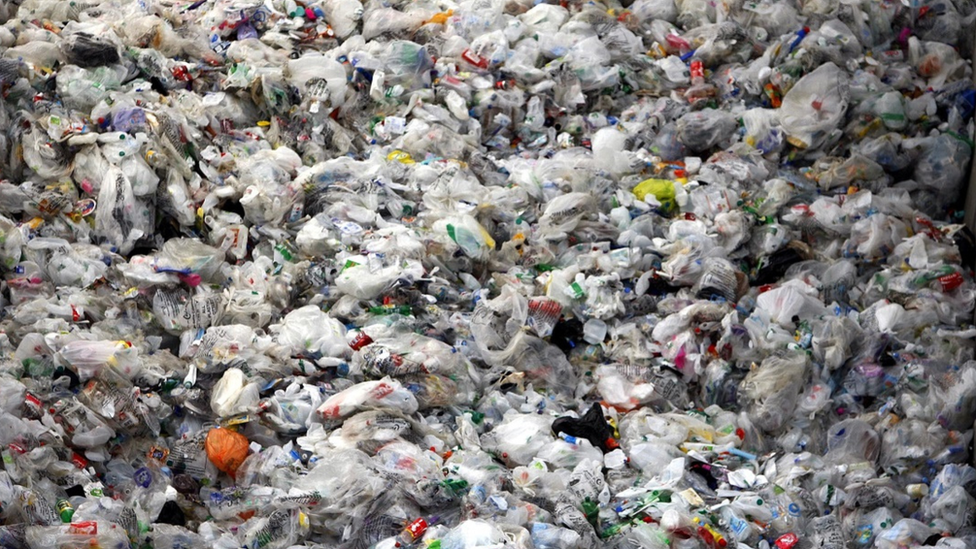
Plastic bags don't biodegrade, which means they sit in landfill for years
Rebecca Pow, the minister for environmental quality and resilience, said the policy had "helped to stop billions of single-use carrier bags littering our neighbourhoods or heading to landfill".
She continued that the government are keen to do more to tackle plastic pollution, such as with the ban on single-use cutlery and plates that's due to come into force in October.
However, Anna Diski said this isn't the case for all government plastic-reduction schemes: "Unfortunately the government recently delayed new schemes to tackle plastic waste. This included a scheme to make sure those companies who make lots of plastic also pay to clean it up," she explained.
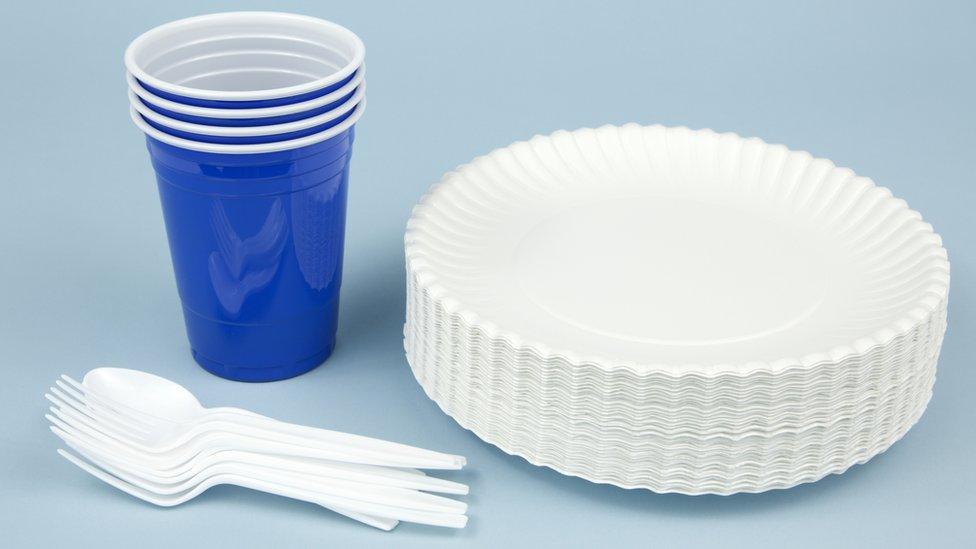
Selling single-use plastic cutlery and plates won't be allowed in 2024
Wales introduced a 5p charge on plastic bags in 2011
Northern Ireland started charging in 2013, and Scotland in 2014
England then introduced the 5p charge in 2015, making it a UK-wide initiative, and raised the price to 10p in 2021
In Scotland plastic bags are also now 10p, and in Northern Ireland they're 25p
And the Welsh government are about to take it one step further, by banning single-use plastic bags completely in 2024
Some campaigners have said that the figures show the good that can be done when government intervenes on environmental issues.
We think the success and popularity of the plastic bag charge should make the government think again and do more right now to tackle plastic pollution."
But Steve Hynd, the Policy Manager at charity City to Sea - who campaign to stop plastic pollution - told BBC Newsround that while this is a good first step, there's more that needs to be done.
He said: "It's great to see a whopping 98% reduction in single-use bag use. But, despite this drop, Brits are still using over 400 million plastic bags a year.
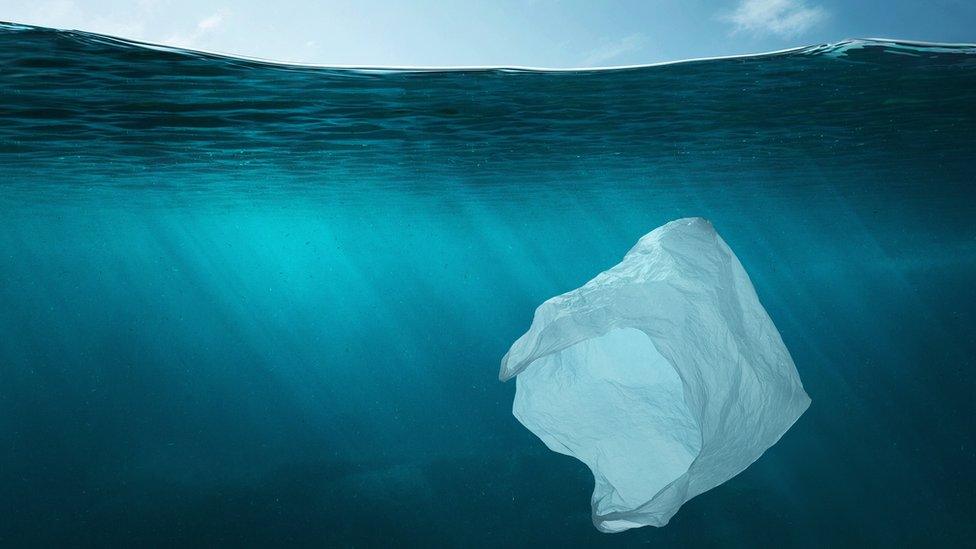
One problem with plastic bags is if they end up in the ocean, as they can be a great danger to wildlife living there
"While we agree that charging customers for bags has worked, we would rather government had just banned them altogether. This is something the Welsh Assembly is planning to do soon."
He continued: "The new stats from government also don't include 'bags for life'. Greenpeace has estimated we use over 1.5 billion of these. So, when you go to the shops next, make sure you take your bags to use time and time again."
- Published17 March 2020
